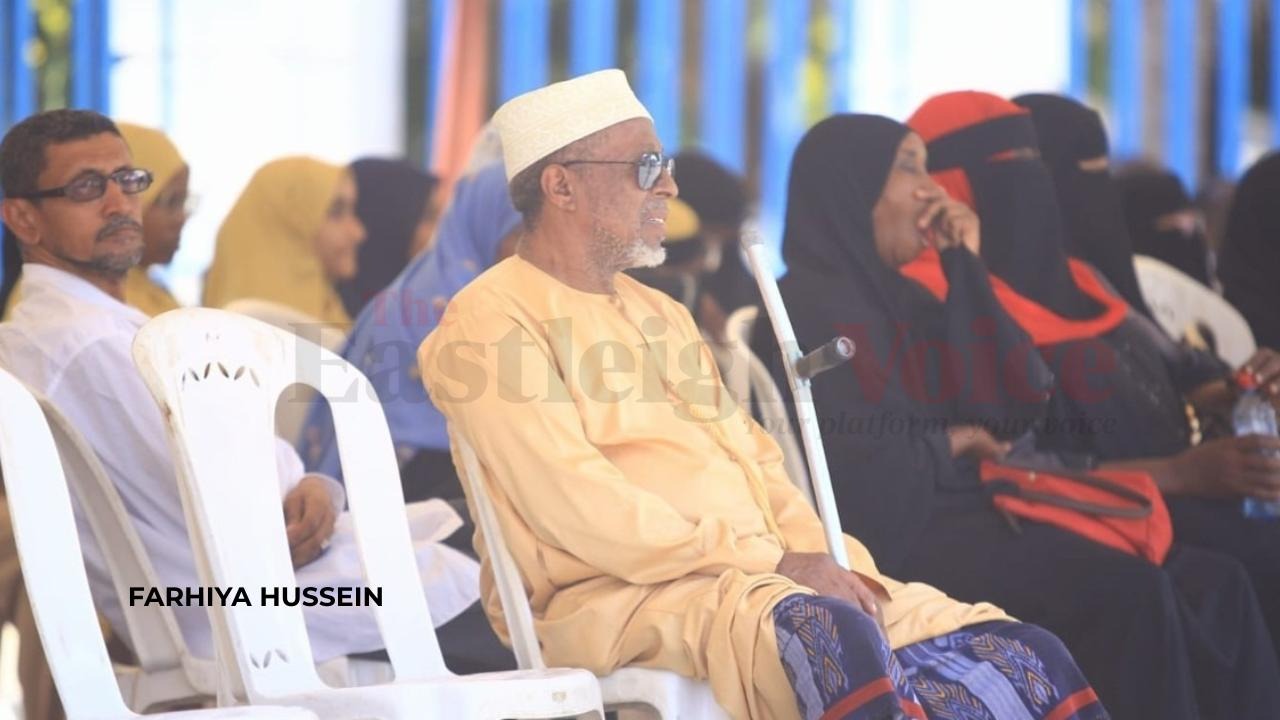Mombasa marks first Kadhi Courts open day in memory of late Chief Kadhi Sheikh Abdulhalim

Held at Treasury Square grounds, the event attracted hundreds of residents, scholars, and judicial officers eager to learn about the roles and procedures of the Kadhi’s Court — an institution often misunderstood by both Muslims and non-Muslims.
The Mombasa Kadhi’s Court opened its doors to the public for the first-ever Kadhi Courts Open Day — a historic event designed to help residents better understand how the Islamic judicial system operates, while honouring the late Chief Kadhi of Kenya, Sheikh Athman Abdulhalim Hussein, who passed away in July.
Held at Treasury Square grounds, the event attracted hundreds of residents, scholars, and judicial officers eager to learn about the roles and procedures of the Kadhi’s Court — an institution often misunderstood by both Muslims and non-Muslims.
More To Read
It was a long-cherished dream of the late Chief Kadhi himself.
Principal Kadhi Abdiaziz Maalim described the occasion as both historic and meaningful for the people of Mombasa.
“These open days are usually held in courts across the country, but for the Kadhi’s Court in Mombasa, this is the first one so it is historic for us. This day is important because it allows us to inform our people about what we do at the Kadhi’s Court and to show that the court follows proper procedures,” he said.
The Open Day featured guided sessions on the functions of the Kadhi’s Court, including family law, succession, and dispute resolution. It also provided a platform for residents to interact directly with judicial officers and gain insight into the court’s mandate within Kenya’s legal system.
Many participants expressed appreciation for the initiative, saying it helped demystify a court they had long viewed as distant or intimidating.
Promotes peace, fairness
“I have always heard about the Kadhi’s Court but never really understood how it works. Today I learnt that the court doesn’t just deal with marital cases; it also promotes peace, fairness, and family reconciliation. It has been truly enlightening,” said 26-year-old resident Fatma Abdalla.
For others, the day carried deep emotion — a chance to remember the late Chief Kadhi, whose vision was to make the institution more open and accessible to the Muslim community.
“He was a man of peace and fairness. He wanted every Muslim to understand their rights through Sharia law and to have confidence in the justice system. Seeing this Open Day happen feels like his dream has finally come true,” said Mohamed Salim, a retired teacher who knew Sheikh Abdulhalim personally.
Moving tribute
During the event, Sheikh Rishard Rajab Ramadhan paid a moving tribute to the late Chief Kadhi, describing him as a man whose humility, wisdom, and devotion left an enduring mark on Kenya’s Islamic justice system.
“We gather here today not in mourning, but in gratitude to celebrate the life and legacy of a man whose service to Islam and humanity continues to illuminate our path,” he said.
He added:
“Throughout his years as Kadhi and later as Chief Kadhi, he stood as a pillar of integrity and justice. His leadership strengthened the institution of the Kadhi’s Courts, ensuring that Islamic justice remained compassionate, fair, and accessible.”
Sheikh Rishard also recalled Sheikh Abdulhalim’s personal commitment to resolving disputes outside the courtroom, often mediating family conflicts to restore peace rather than deliver rulings.
“True justice, he believed, was not only found in judgments, but in restoring harmony among people,” Sheikh Rishard said.
Chief Justice Martha Koome, in an earlier message shared by the Judiciary, also hailed the late Kadhi as a “humble and principled jurist whose leadership inspired confidence in the administration of Islamic justice.”
For many in attendance, the Open Day was more than an educational forum — it was a bridge between the judiciary and the community.
Residents toured information booths, asked questions, and learned how to file cases, understand judgments, and seek mediation.
“I never thought I would be able to walk freely and ask questions. Now I know the Kadhi’s Court is not just a place for punishment, but also for guidance and reconciliation,” said Amina Juma.
Principal Kadhi Maalim noted that the Judiciary plans to hold similar Open Days across the country — continuing the late Chief Kadhi’s vision of making Islamic justice transparent, compassionate, and community-centred.
Top Stories Today














































